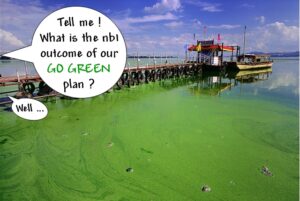 I participated on Septembre 21st, 2012 in Fontainebleau to the « 28th Sustainability Executive Roundtable », organized by the Social Innovation Centre of INSEAD. The programme was focusing on « Sustainaibility and HR, challenges for the firm and its members ».
I participated on Septembre 21st, 2012 in Fontainebleau to the « 28th Sustainability Executive Roundtable », organized by the Social Innovation Centre of INSEAD. The programme was focusing on « Sustainaibility and HR, challenges for the firm and its members ».
This roundtable crossed presentations, opinions and ideas from business leaders, managers, consultants and professors about the following topics: how can we integrate sustainability in the DNA of the company and the mind of its employees ?
The world is being transformed, so companies are going to be transformed, therefore employees and first of all managers have to be transformed
The representative of a major international company (>200.000 employees), well advanced in sustainable development, told us that its sustainable living plan is facing the following challenges :
- Creating the shared needs to change is difficult,
- developing the vision is rather easy,
- but, mobilizing commitment is not so easy,
- planning and executing change is very difficult,
- communicating the change is difficult,
- aligning infracstructure is also difficult
- and sustaining momentum is very difficult.
Even so, this big group is a member of the 3rd box described by one of the participants. The 3rd box holds companies with serious engagement to develop sustainability. The second box holds all big companies who mainly focuse on communication about sustainability (making nice annual report). The 1st box holds small and mid cap companies for which sustainability is just seen as a constraint. Guess which box is the largest one and which box is the smasllest one !
So, if such a big company, with a CEO committed to sustainability and leading a great sustainable living plan since 2 years as so much difficulties, how can we make a really better world. How can we win the race against time :
sufficiently slowing down climate change, preserving biodiversity, letting millions of people getting out of poverty without exhausting the resources of our planet,, … How can we be truly and globally sustainable ?
We spoke during this roundtable about :
- finding the right middle way between profit and growth, short and long term, units and whole,
- developing future leaders with experience of real life, for example facing nutrition problems in poor countries before working in food company, or experiencing business development in developing countries, as selling insurance to farmers in central Africa, …
- multidimensional leadership in companies (and government too) as key dimension of the success of sustainability,
- stopping hypocrisy in companies, like setting sustainability targets but having middle management facing trade-off
between sustainability and financials results, - …
… a lot of nice ideas to develop sustainability, but my conclusion is that « true business is not compatible with true
sustainability ». The last lecturer, Marc Le Menestrel said « the current systemic crisis is also the failure of modern way of thinking about goals ».
We need a much wider picture than just sustainability of business, we need a new mindset and a new economic principle, as « Prosperity without growth » proposed by Tim Jackson and summarized in another article of this weblog (in French).,
Didier – Citizen of
the World
Picture from
www.greenetvert.fr /eutrophication&hypoxia
